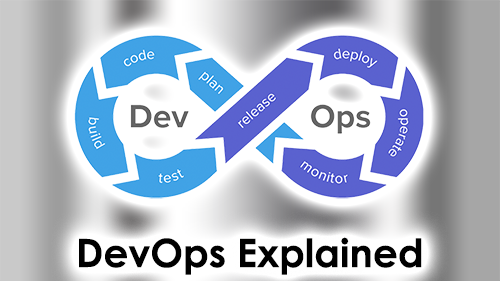Adopt DevOps principles to improve collaboration, accelerate delivery and increase efficiency. Learn about the principles and practices of DevOps, including its culture, tools, and techniques for continuous delivery and improvement.
What is DevOps? Video Talkthrough
DevOps: Streamlining Your Development and Operations for Improved Efficiency
In the fast-paced world of software development, staying ahead of the competition requires a seamless integration between development and operations. DevOps is a methodology that aims to bring the two departments together, streamlining processes and reducing the time it takes to get new features and updates to market.
By utilizing DevOps best practices, organizations can not only improve the speed and efficiency of their software development cycle but also deliver high-quality products that meet the demands of their customers.
The Benefits of DevOps
There are numerous benefits to implementing a DevOps approach in your organization. These include:
- Faster Time-to-Market: DevOps streamlines the software development process, reducing the time it takes to get new features and updates to market. This means that your organization can stay ahead of the competition and provide more value to your customers.
- Improved Collaboration: DevOps brings together development and operations teams, fostering a collaborative environment that encourages cross-functional communication and problem-solving.
- Increased Reliability and Quality: DevOps emphasizes automation and testing, reducing the risk of human error and ensuring that your software is reliable and of high quality.
- Better Customer Satisfaction: DevOps enables organizations to deliver high-quality software that meets the demands of their customers, leading to improved customer satisfaction and loyalty.
Understanding DevOps Culture
DevOps is not just about tools and techniques; it’s also about a cultural shift. Agile DevOps incorporates the principles of Agile development and applies them to the entire software delivery process. Collaboration and communication between development and operations teams is key to success in DevOps. A culture change is required to embrace a DevOps mindset, which emphasizes continuous improvement and a willingness to try new things.
DevOps Tools and Techniques
The DevOps pipeline is a key component of the DevOps approach. It encompasses the entire software delivery process, from development to deployment. Automation is a key aspect of DevOps, as it helps teams work more efficiently and reduces errors.
Popular DevOps tools include Jenkins, Docker, Ansible, and Puppet. These tools automate many aspects of software delivery, including testing, deployment, and monitoring.
Implementing DevOps in Your Organization
Implementing DevOps in your organization can be a complex process, but there are steps that you can take to ensure its success:
- Assess your current processes: Take a look at your current development and operations processes, identifying areas that could benefit from automation and streamlining.
- Define your goals: Clearly define what you hope to achieve through your DevOps implementation. This could be anything from reducing time-to-market to improving collaboration between departments.
- Adopt the right tools: There are a number of DevOps tools available that can help streamline processes and improve efficiency. Choose the tools that are best suited to your organization’s needs and goals.
- Foster a culture of collaboration: DevOps requires cross-functional communication and collaboration, so it’s important to foster a culture that encourages this. This could include regular meetings and workshops to promote collaboration between departments.
- Automate where possible: Automation is a key aspect of DevOps, so make sure to automate as many processes as possible to reduce the risk of human error and improve efficiency.
The Impact of DevOps
By implementing a DevOps approach in your organization, you can improve the speed and efficiency of your software development cycle, delivering high-quality products that meet the demands of your customers. Whether you’re just starting out or looking to optimize your existing processes, DevOps has the potential to drive significant improvements in your organization.
DevOps FAQ
- What is DevOps and why is it important?
- What are the core principles of DevOps?
- What are the benefits of using DevOps?
- What are the main tools used in DevOps?
- What is the role of DevOps in Agile?
- What is the difference between DevOps and Agile?
- What is the future of DevOps?
- What are the best DevOps practices?
- What is the impact of DevOps on IT organizations?
- What are the challenges of implementing DevOps?
- How to implement DevOps in your organization?
- What are the common mistakes to avoid in DevOps?
- What is the relationship between DevOps and CI/CD?
- How to measure the success of DevOps implementation?
Images Are Rights Reserved


1 thought on “DevOps Explained”